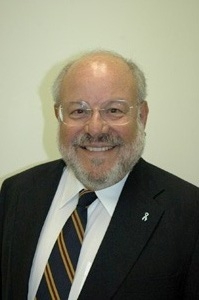From seemingly out of nowhere has come the Internet--to be, suddenly, the greatest global platform for free expression the world has ever seen.
But will this last?
Last month, an international conference was held that pitted nations seeking greater governmental control over the Internet--led by Russia and China--against countries advocating a hands-off approach. These included the United States, Canada, Israel, and nations of western Europe including Great Britain.
The U.S. ambassador to World Conference on International Telecommunications, Terry Kramer, declared: "The Internet has thrived because it has been left in an open environment, and all the commercial opportunities that accrued, and the rights to free speech and democracy, are because it's been left alone." http://www.foxnews.com/tech/2012/12/03/us-ambassador-were-trying-to-stop-un-from-regulating-internet/?test=latestnews
Kramer, in the telecommunications field for 25 years, was appointed by President Barack Obama to head the U.S. delegation to the 12-day conference held in Dubai. Some 2,000 people from 193 nations participated.
"An attempt to establish global oversight of the Internet has collapsed after many Western countries said a compromise plan gave too much power to United Nations and other officials," reported RTE News, a website out of Ireland, about the conference. It added: "While other countries will sign the treaty, the absence of so many of the largest economies means that the document, already watered down to suit much of the West, will have little practical force." http://www.rte.ie/news/2012/1214/internet-united-nations.html
But the struggle is far from over.
The resolution agreed upon--although not by the nations opposed--resolved that the UN secretary-general "continue to take the necessary steps for ITU to play an active and constructive role in the multi-stakeholder model of the Internet."
ITU is the acronym for the International Telecommunications Union which hosted the conference. Although now an agency of the UN, it predates the world body by more than
75 years having been founded in 1865 to help coordinate international standards for telegraph signals. After the Titanic sank in 1912--a disaster compounded by problems involving reception of signals from the ill-fated ship, ITU's role greatly increased.
Comparing this "landmark" Titanic-based event with what has been happening with the ITU and the Internet, Professor Patrick S. Ryan wrote an article in the Stanford Technology Law Review last year entitled, "The ITU and the Internet's Titanic Moment."
Ryan, a professor in the University of Colorado at Boulder Interdisciplinary Telecommunications Program as well as a "policy counsel" for Open Internet at Google, Inc., wrote: "While the ITU isn't exactly a household name, it nonetheless may end up making critical--and potentially harmful--decisions that have a profound effect on Internet users around the globe." He said the December ITU conference "together with policy consultations in 2013"may significantly change how the Internet is governed." click here
Ryan is highly critical of the ITU. "Perhaps the greatest problem with the ITU," he states, "is its lack of transparency. Most democratic governments and processes have some fundamental right to public information and to the system for creating it. Yet the ITU is closed, opaque, and obfuscated in terms of its legislative treaty-making processes and in its standard-setting processes." It is a "large, closed, bureaucratic organization that uses scare tactics in an attempt to reinforce the need for its regulatory involvement."'
But the situation involves far more than the ITU.
At its center is the clash between people expressing themselves freely and those in power threatened by this--a conflict as old as the printing press.
Indeed, every semester in my classes in Investigative Reporting at the State University of New York/College at Old Westbury, I give a lecture on this conflict between free expression and power--a battle that's been never-ending.
(Note: You can view every article as one long page if you sign up as an Advocate Member, or higher).





